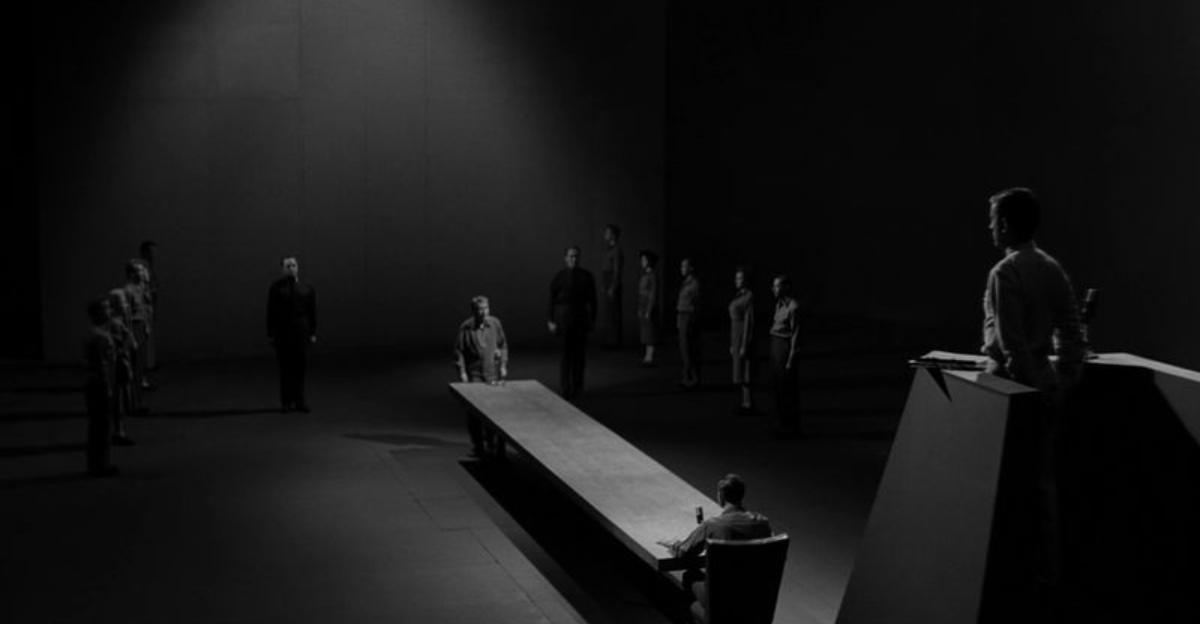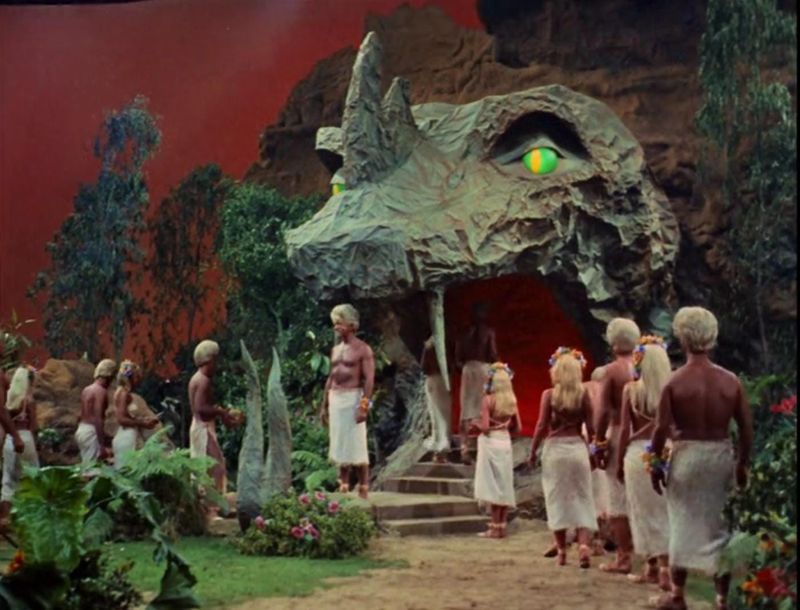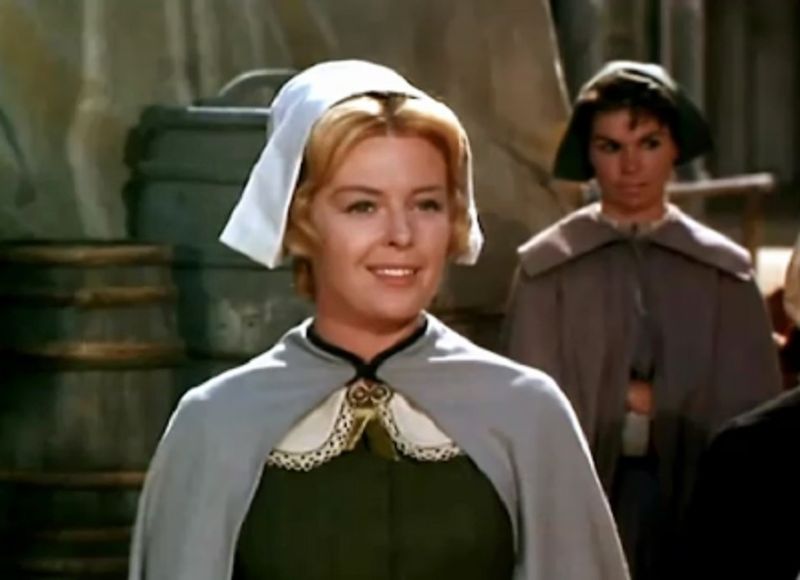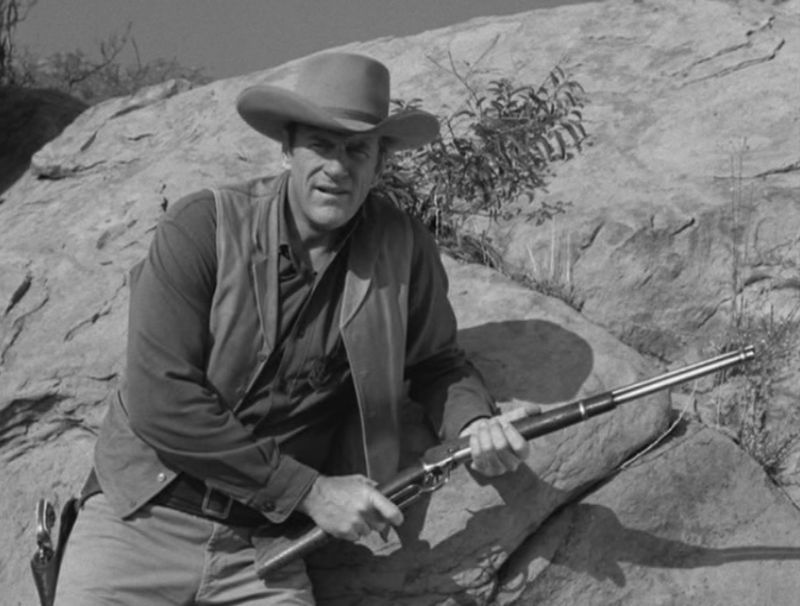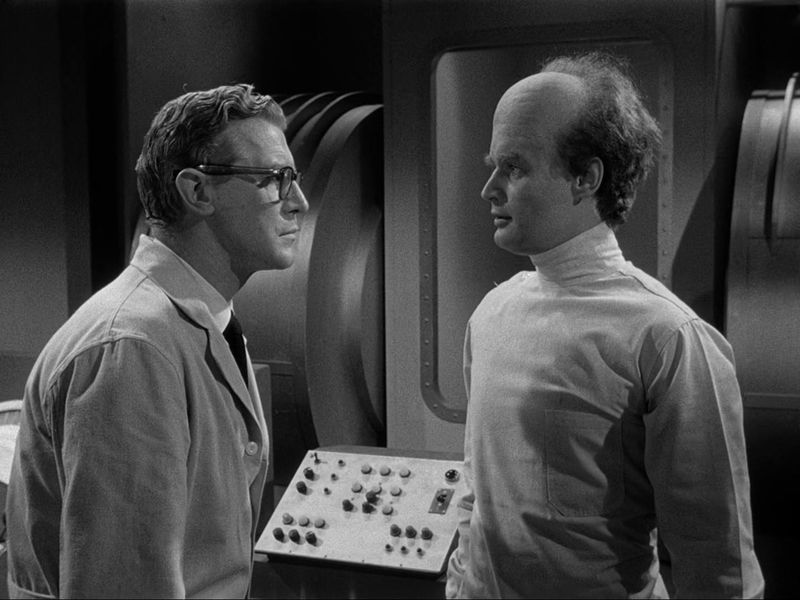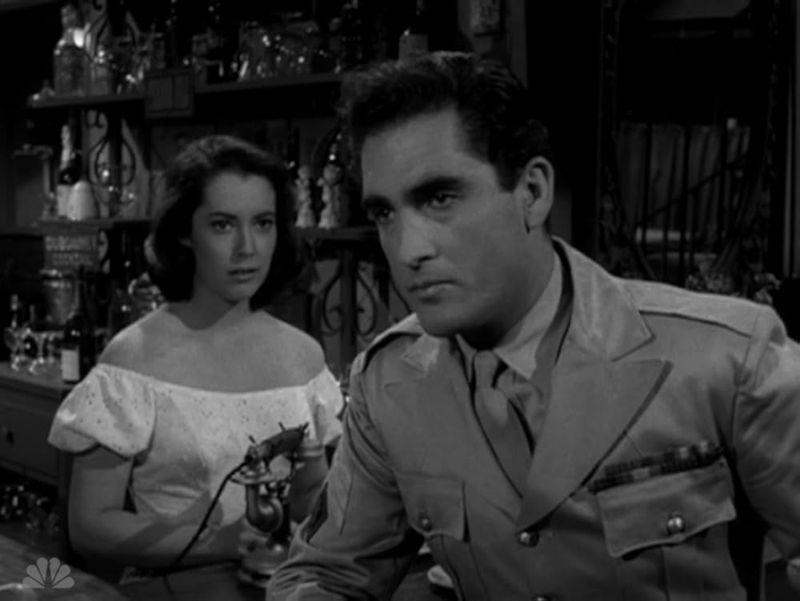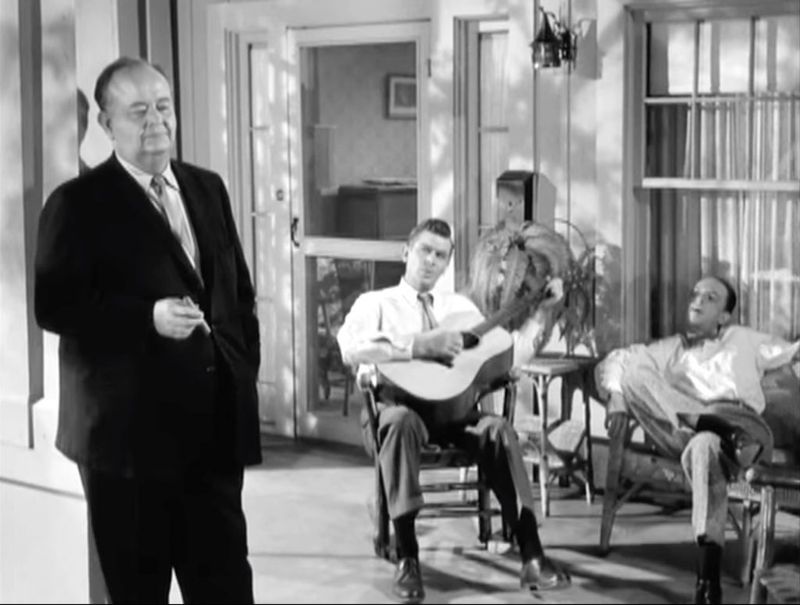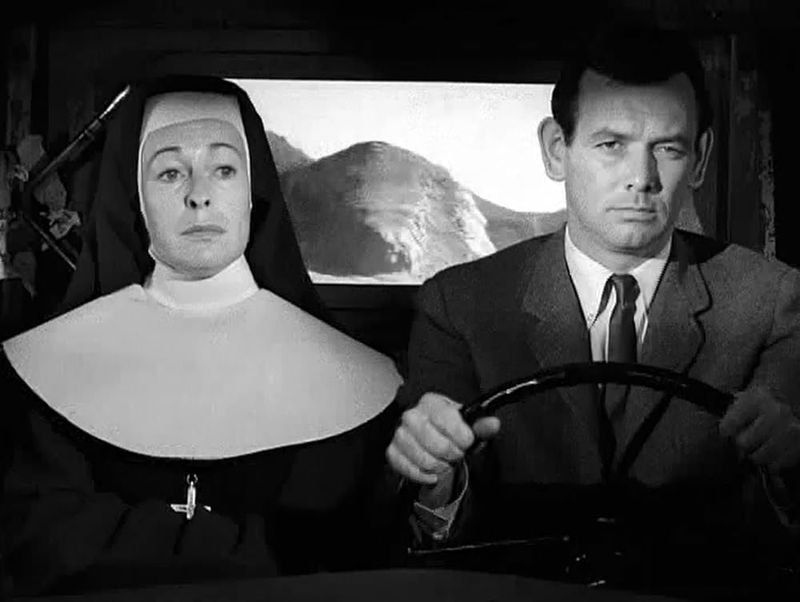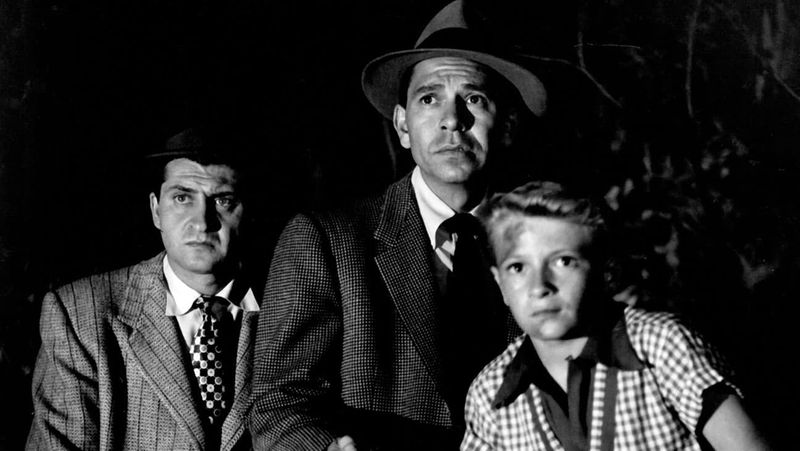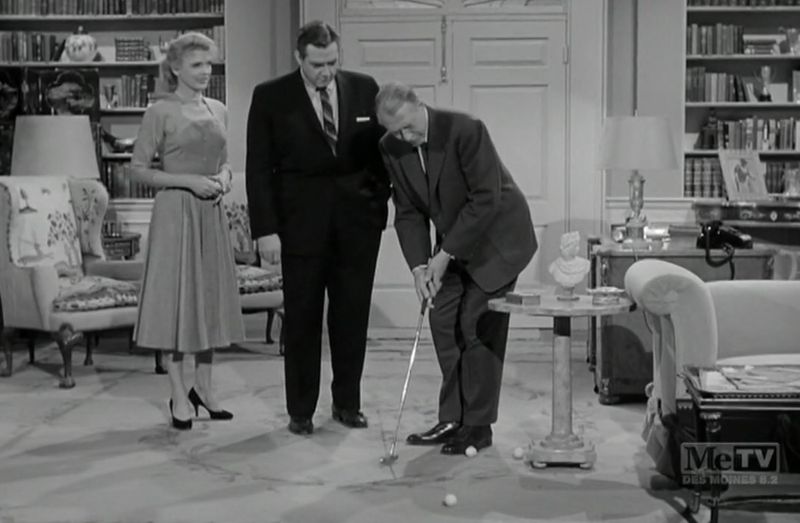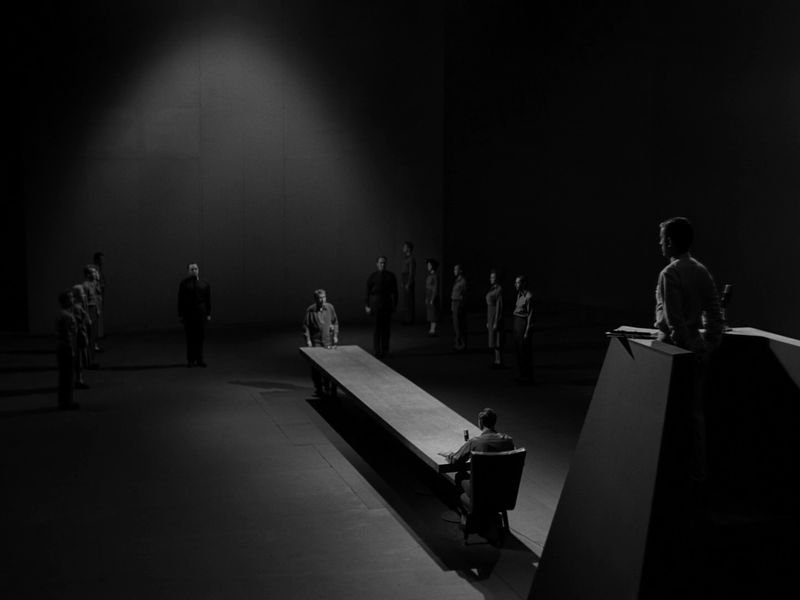Television has often taken inspiration from biblical tales, weaving them into narratives that both entertain and provoke thought. Here, we explore ten classic TV episodes that cleverly echoed biblical stories, each adding its own unique twist. From tales of rebellion against oppressive systems to stories of moral and ethical dilemmas, these episodes reflect the timeless lessons of the Bible through the lens of television’s golden age.
1. Star Trek: The Original Series – “The Apple” (1967)
Star Trek’s encounter with paradise uncovers a hidden tyranny. The crew stumbles upon a world ruled by Vaal, a machine demanding obedience. Captain Kirk’s destruction of this false god echoes the biblical tale of Eden. The episode challenges the notion of blind faith in technology, setting the crew as liberators. Rather than a divine punishment, it’s human choice that frees the inhabitants. This science fiction retelling prompts viewers to question what paradise truly means and who defines its boundaries.
2. Bonanza – “The Hopefuls” (1960)
Bonanza’s Cartwrights guide a group of pacifist pilgrims through perilous terrain. Mirroring Moses’ journey, they face trials that test their resolve. The episode emphasizes themes of faith, struggle, and deliverance. As the pilgrims persevere, their journey reflects a search for a promised land. The Cartwrights, with their rugged determination, embody the spirit of leadership and guidance. This western adventure intertwines faith with survival, offering a glimpse into the challenges of forging a new path.
3. Gunsmoke – “The Brother” (1967)
In the wild frontier, brother turns against brother. Gunsmoke’s tale of betrayal echoes the biblical story of Cain and Abel. As familial tensions rise, the land becomes a symbol of their conflict. This western narrative explores themes of inheritance, faith, and betrayal. Set against the stark backdrop of the prairie, the moral ambiguity of the brothers’ choices stands out. The story challenges viewers to consider the bonds of family and what drives a man to forsake them.
4. The Outer Limits – “The Sixth Finger” (1963)
The quest for knowledge leads to unforeseen consequences in this Outer Limits episode. A scientist’s experiment propels a man to a level of intelligence beyond humanity. This modern retelling of the Tower of Babel questions the limits of human ambition. As the protagonist grapples with newfound power, the narrative critiques unchecked scientific advancement. The episode becomes a cautionary tale about hubris, blending science fiction with ancient cautionary wisdom.
5. Alfred Hitchcock Presents – “The Return of the Hero” (1958)
A hero’s return reveals hidden truths in Alfred Hitchcock’s suspenseful tale. Initially celebrated, the protagonist’s secrets lead to betrayal rather than redemption. This episode twists the parable of the Prodigal Son, where forgiveness is elusive. As the community’s admiration turns to suspicion, the story delves into themes of identity and deception. Hitchcock’s narrative invites viewers to question the nature of heroism and the price of hiding one’s past.
6. The Andy Griffith Show – “Man in a Hurry” (1963)
The bustling man’s car breaks down in Mayberry, forcing him to embrace a slower pace. This episode draws a parallel to the Sabbath, where rest becomes an unexpected lesson. As the man reluctantly adapts to small-town life, the wisdom of simplicity takes center stage. Instead of religious observance, it’s the community’s gentle nature that teaches him to pause. The narrative emphasizes the value of rest and reflection in a fast-paced world.
7. The Fugitive – “Angels Travel on Lonely Roads” (1963)
In a tale of unlikely alliances, a fugitive finds an unexpected ally in a serene nun. Her guidance on his journey parallels the biblical Road to Emmaus. The nun’s wisdom and calm demeanor hint at divine intervention. This episode blends themes of redemption and angelic guidance in a modern setting. As the fugitive grapples with his past, the narrative explores the possibility of finding hope in unexpected places.
8. Dragnet – “The Big Church” (1953)
Detectives Friday and Smith unravel a mystery within the sacred walls of a church. This episode mirrors the commandment ‘Thou shalt not steal,’ exploring morality beneath piety. As the investigation unfolds, the church becomes a symbol of hidden truths. The narrative challenges viewers to reflect on the complex nature of faith and integrity. Rather than clear resolutions, the story leaves lingering questions, inviting introspection.
9. Perry Mason – “The Case of the Stuttering Bishop” (1959)
In a courtroom drama, a humble bishop battles against a corrupt legal giant. This Perry Mason episode echoes the David vs. Goliath story, merging faith with justice. As Perry defends the bishop, themes of courage and morality take center stage. The narrative transforms the courtroom into a modern battlefield, questioning the balance of power and righteousness. This gripping tale highlights the intersection of faith and law in pursuit of truth.
10. The Twilight Zone – “The Obsolete Man” (1961)
In a world where books and religion are banned, a librarian (Burgess Meredith) stands trial. His crime? Being obsolete. As he faces a tribunal, he remains steadfast, reciting Scripture with unwavering faith. This mirrors Daniel’s courage in the lion’s den, showcasing resilience in the face of oppression.
Set in a stark, dystopian future, the episode highlights the power of individual belief against a backdrop of authoritarian rule. The librarian’s calm demeanor and eloquent defense of his faith remind viewers of the enduring power of conviction.
